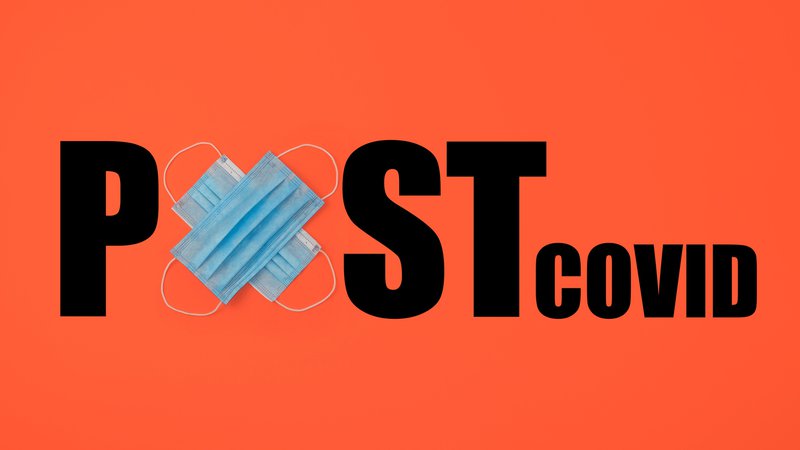
Gordon Pape
Nov. 16, 2020
The U.S. election is finally over, leaving behind a legacy of jubilation or recrimination, depending on your political outlook.
The United States has a new President-elect in Joe Biden, but it will be more than two months before he is sworn in and can actually start implementing any changes.

But the world isn’t going to remain on hold until then. Our problems aren’t going to magically vanish. Whatever your reaction to the election result may be, we are still going to have to deal with the current financial and economic reality. Here’s what that means.
The coronavirus is out of control. Canada’s infection rate is worrisome, but the U.S. is out of control. More than 180,000 new cases were reported on Nov. 13 and the curve continues to trend higher. The President’s Chief of Staff, Mark Meadows, has tested positive for COVID-19, as have several other White House staffers. Some public health experts now predict we may see more than 300,000 new cases a day in the U.S. by January.
The recent announcement by Pfizer that its vaccine trials are showing 90 per cent effectiveness cheered the markets. But even if it gets approval by year-end from Health Canada and the U.S. Food and Drug Administration, it will be several months before a vaccine is widely available. At his first public briefing since the election, President Donald Trump predicted on Friday that it would be April before large-scale vaccinations will begin.
In the meantime, we don’t know the extent of the economic damage the second wave may inflict. GDP in both Canada and the U.S. rebounded strongly over the summer as new diagnoses declined and the economy largely reopened. President Trump wants to keep it open and Mr. Biden has said he would not lock down his country.
But reality is reality. Faced with rapidly escalating caseloads, many European countries have reverted to the draconian shutdowns of last April. The economic consequences will be severe.
The same may happen in North America. Mr. Trump won’t encourage it while he remains in office but public health officials in many states are even now trying to convince elected officials to take stronger action. In Canada, Ontario Premier Doug Ford has bluntly warned that “we’re staring down the barrel of another lockdown”.
In short, the coronavirus is not finished hammering the economy, and won’t be until an effective vaccine is widely available.
Interest rates will remain low. We’re not likely to see any uptick in interest rates in 2021 and probably not in 2022. The Bank of Canada and the Federal Reserve Board have both made it clear that low rates will stay in place until economic growth returns to normal.
That means any interest-bearing securities, from GICs to government bonds, will continue to provide meagre returns. Investors looking for cash flow will need to continue to focus on dividend-paying stocks.
Marginal companies remain at risk. Many small businesses have already closed their doors forever and now we’re starting to see a wave of takeovers in weaker areas of the economy, such as the oil sector. Larger companies with decent balance sheets are looking to scoop up distressed competitors with attractive assets.
We haven’t seen any major COVID-related moves in the REIT sector yet, but it’s one to keep an eye on. Several companies in the retail and office areas are struggling and some, such as H&R REIT, have slashed their distribution. Some of these trusts may become takeover targets for better-financed businesses down the road.
Central banks are going to continue to print money. As long as the coronavirus continues to ravage the global economy, central banks around the world are going to print money at an unprecedented rate to provide liquidity. To do otherwise would almost certainly lead to a depression.
But they are walking a tightrope. An expanding money supply almost inevitably leads to inflation down the road. Both the Fed and the BoC have scrapped their traditional 2-per-cent inflation targets but no central bank can allow it to get out of control. We saw what can happen in that situation back in the early 1970s when both Canada and the U.S. were forced to impose wage and price controls.
So, what should you be doing right now? As I have suggested in the past, maintain your focus on high-quality, dividend-paying stocks. Don’t be tempted by some of the extremely high yields we are seeing right now; the market is telling us those companies have financial problems and a dividend/distribution cut is possible. If the yield is over 7 per cent, be very prudent.
The best sectors to focus on for dependable cash flow at this time are utilities, telecommunications, banks, and consumer staples. But do your research, with special focus on balance sheets. Quality first. This is not a time to take flyers.
This Globe and Mail article was legally licensed by AdvisorStream.
© Copyright 2024 The Globe and Mail Inc. All rights reserved.


